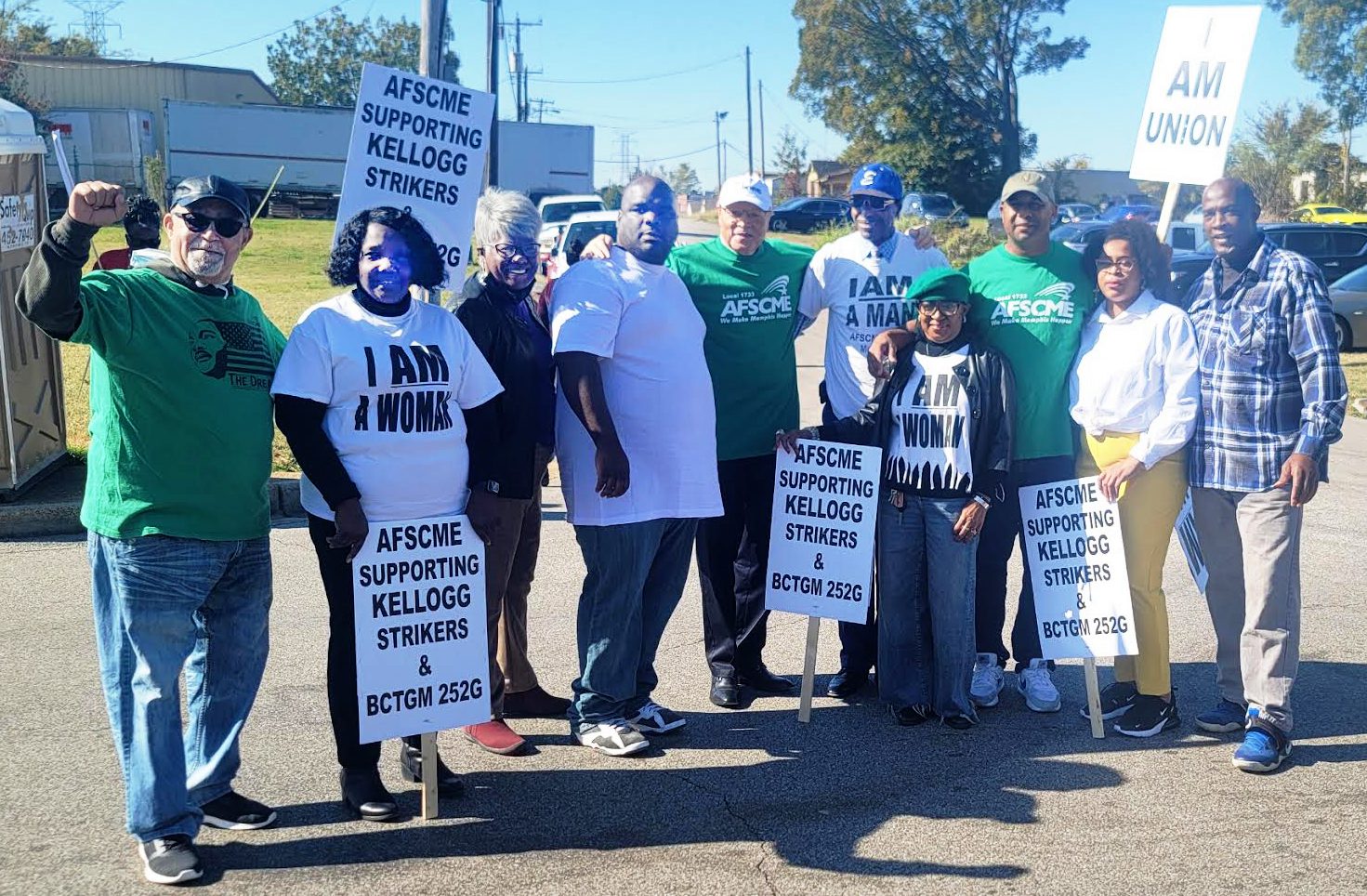
The Memphis spokesman for striking Kellogg Company employees said the latest settlement offer from the company was rejected unanimously because it was “just not enough.”
Votes were cast last Sunday (Dec. 5) by the 1,400 Kellogg Company employees at Kellogg’s four U.S. cereal plants, located in: Battle Creek, MI; Omaha, NE, Lancaster, PA, and Memphis.
Kevin Bradshaw, who represents local members of the Bakery, Confectionary, Tobacco Workers and Grain Millers (BCTGM) International Union, said, “We are not really asking for higher wages. We want job security for all employees. Job security is our biggest concern.”
The offer presented to employees was for the next five years. Contracts are renewed every five years.
The Kellogg Company said its offer provided for “an accelerated, defined path to legacy wages and benefits for transitional employees” and “wage increases and enhanced benefits for all.”
Kellogg North America President Chris Hood addressed the rejection of the company’s offer via a news release posted on the company’s website on Tuesday (Dec. 7).
“After 19 negotiation sessions in 2021, and still no deal … we will continue moving forward to operate our business,” said Hood. “The prolonged work stoppage has left us no choice but to continue executing the next phase of our contingency plan, including hiring replacement employees in positions vacated by striking workers.”
Bradshaw said under Kellogg’s offer new workers would not have the same job security employees have enjoyed in the past.
“We wanted a guarantee that everyone would be treated equally. New hires would be locked in at the rate they were brought in on. Pay increases in the past were given each year, once the employee reached permanent status. Every year, only three percent of the employees would graduate to full-time, permanent status. We want that number to be much higher.”
Another sticking point for strikers is insurance.
“Insurance benefits would not be what they have been in the past under this tentative agreement,” said Bradshaw. “Workers who have been there for many years have 100 percent of their insurance paid. New workers would have 80 percent paid, and they would be responsible for the remaining 20 percent. While that is good, it does not offer new employees the same benefit.”
Bradshaw labeled the company’s reference to “hiring replacement workers” a “scare tactic used by corporations to break a strike. … The company has been busing in scabs for over a month now. They are brought in to work from 7 a.m. to 7 p.m. We see them come in and we see them leave while we are picketing the plant.”
Hood said Kellogg must “take the necessary steps to ensure business continuity. … We have an obligation to our customers and consumers to continue to provide the cereals that they know and love.”
Bradshaw said a company cannot “legally replace striking union workers with scabs. … All they can do is bring them in on a temporary basis. They can’t keep up with the demand. Many stores have signs on the shelf saying that there may be a shortage in the supply of cereal, and the shelves are getting empty. We think this will bring Kellogg back to the table.”
Donations of money and gifts are still being accepted for the families of striking workers, especially those with minor children, said Bradshaw.
Donations may be sent to: BCTGM Local 252G; 3885 S. Perkins Rd. #9; Memphis, TN 38118.